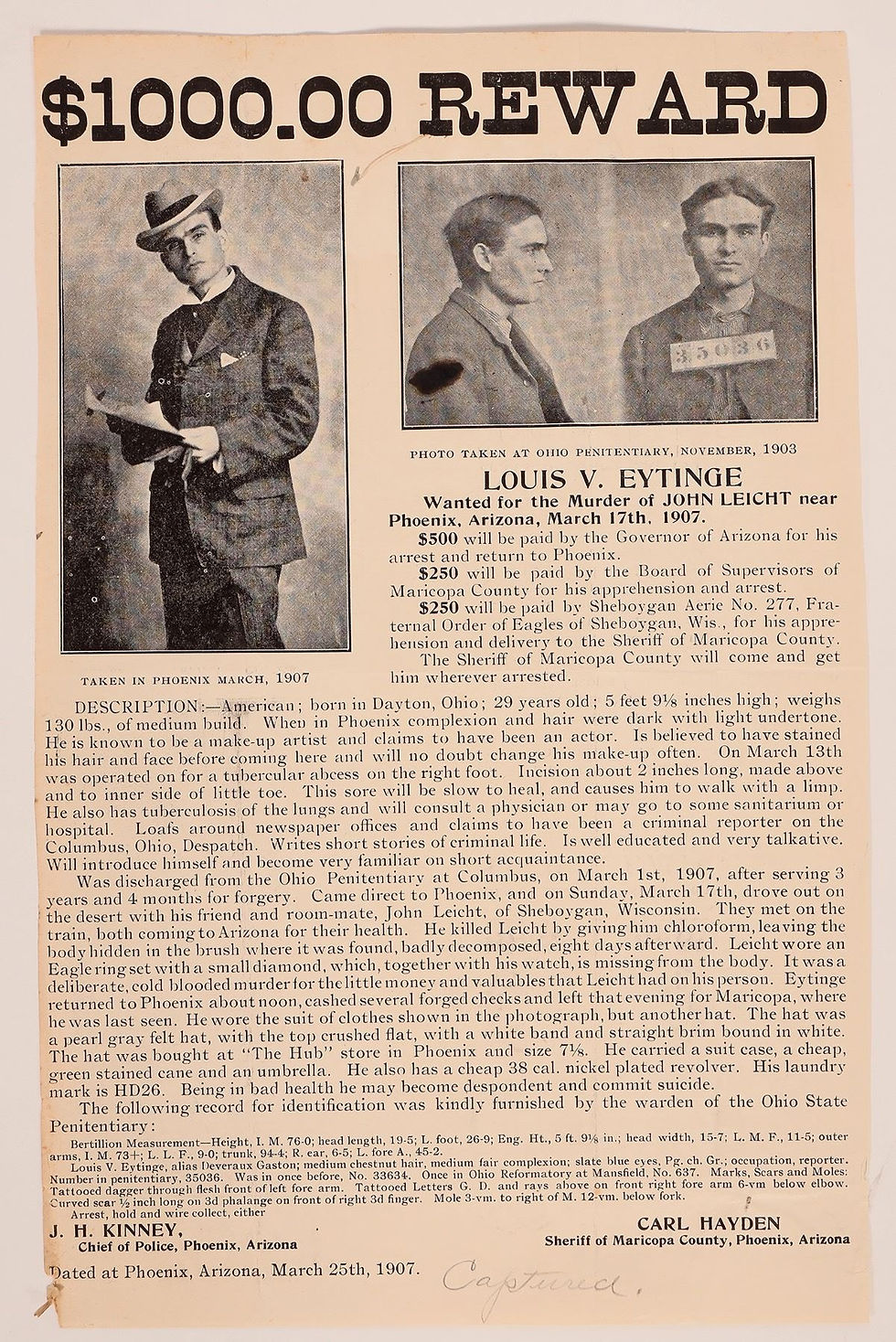Writing About Family
- David Grassé
- Apr 9, 2021
- 4 min read
Last year, I began a manuscript of a rather personal nature. I began writing about the Reverend David Roberts, my great grandfather on my father’s side of the family, and the man for whom I was named. The Reverend Roberts was a Methodist minister, originally from Wales, and educated in California. The Reverend arrived in the Arizona Territory in 1894, having been assigned by the church to the town of Solomonville, near Safford. Over the course of his career, the Reverend served in churches all across the territory, including those in the towns of Bisbee, Tombstone, Mesa, Williams, and Glendale.
Some of these towns, which the Reverend Roberts was assigned to, were pretty rough places. Though the Arizona Territory was slowly becoming more “civilized,” saloons, brothels, and gambling dens were still the rule, not the exception. Tombstone was already past its prime when the Reverend arrived there, but the Alvord-Stiles gang and many other hard characters remained in the county, and crimes from simple rustling to train robbery and murder were commonplace occurrences. During the Reverend’s tenure in Bisbee (where he supervised the building of the Methodist church, which still stands today), he had to compete with the salacious temptations of Brewery Gulch, the notorious red light district. During his time in Williams, the Reverend went head-to-head (in print) with the local newspaper editor, who represented the pro-saloon/pro-alcohol crowd.
As the reader may have surmised, the Reverend Roberts was a hard-line Progressive Era reformer. He was aligned with social reform groups like the Anti-Saloon League, the Woman's Christian Temperance Union, and the Junior Epworth League, and firmly believed moral and ethical principles (specifically those based in fundamentalist Judeo-Christian teachings) could and should be enforced by legislation. Of course, not all that the Progressives did was detrimental to people's civil and religious liberties. If not for the Progressive Movement, much of what we now take for granted in regards to our social and political lives - women's suffrage, child labor prohibitions, food purity, workplace safety regulations, compulsory education, the ability of workers to unionize, and the regulation of big business and corporations - would not exist.
Still, there was this issue of the Progressives imposing Judeo-Christian morality on the citizenry by legal means. Among the goals of these sectarian reformers were the closing saloons, the criminalizing sex work, the prohibiting of gambling, and the criminalizing drug and alcohol use (it was the Progressives who brought the U.S. the 18th Amendment and the disaster that was Prohibition) and, the Reverend Roberts was an ardent supporter of these (draconian) measures designed to ensure the compliance of the citizenry with canon of Christianity. As a very-left wing libertarian and one who believes in absolute autonomy of all persons, I find that I am categorically opposed to all the reforms the good Reverend espoused.
I don't think the Reverend Roberts was a sanctimonious autocrat or a hypocrite. As far as I can tell, he was a devout believer and probably meant well. I just think he was seriously misguided.
As an author, biographer, and a direct descendent of the man I am writing about, I find myself in a very curious position. How does one write about someone, like the Reverend Roberts, who one disagrees with so vehemently, without showing my own bias and/or passing judgement? Is it even possible to do so? This is especially concerning to me as I am not his only living descendent and, when the extended family (including his granddaughter) reads this, I want them to be pleased with what I have written about our forefather.
I think the trick to writing the Reverend Roberts' biography will be in not holding him to modern standards, but showing he was a product of his times. However, I will not be whitewashing him or his belief systems to make them more palatable and acceptable to my readers. I am not one to pull my punches. If a man is a bigot, I will call him a bigot without hesitation (though there is no indication in the historical record the Reverend was a bigoted man). In my other books I have sought the truth, and did not varnish it when it was raw and rough. Just because the Reverend was my ancestor, does not mean I will not criticize or censure him when appropriate.
I do hope to get this manuscript published (though I am not certain how many will want to read about the life of a minister in the waning days of the Old West). If I am not successful in this I will donate the manuscript, along with the my grandmother's photo albums (from which the accompanying photo was taken), which were left me by my father to the Arizona Historical Society. I have always though the Roberts/Grassie family should be represented in this institution.
(From left to right: Mrs. Clarissa Roberts, Eleanor Roberts, the family dog, the Reverend David Roberts, Vida Roberts [my grandmother], and Ruth Roberts)







Comments